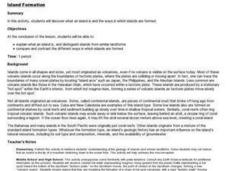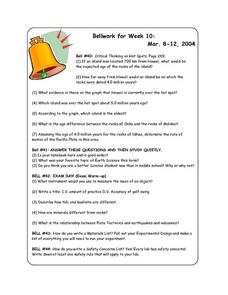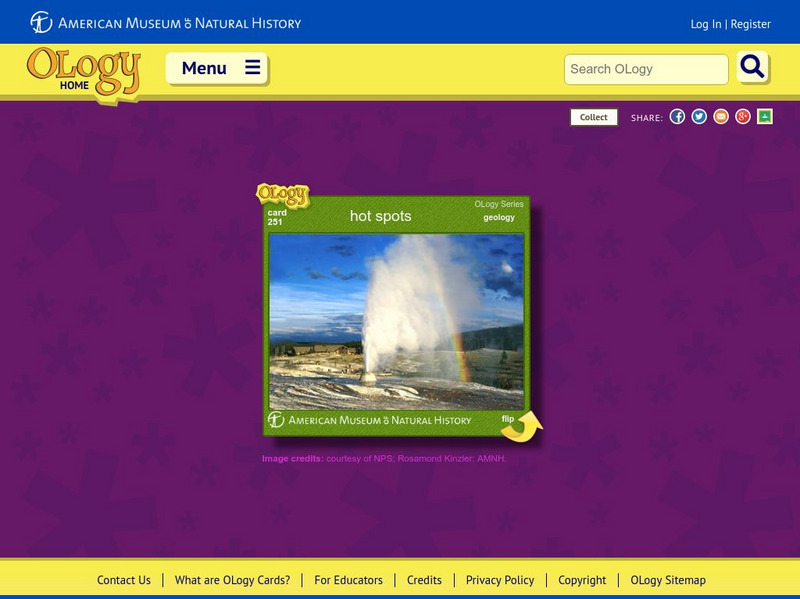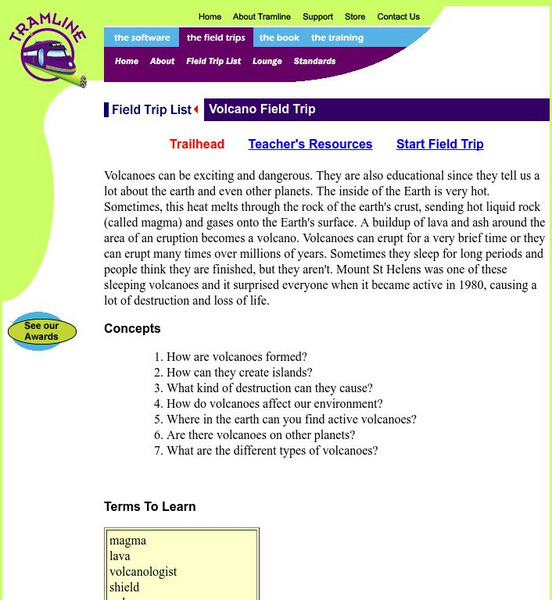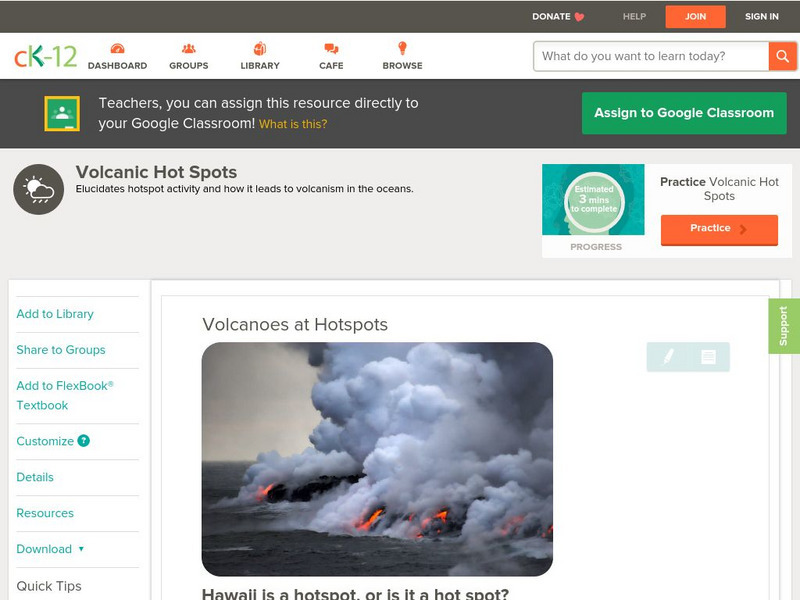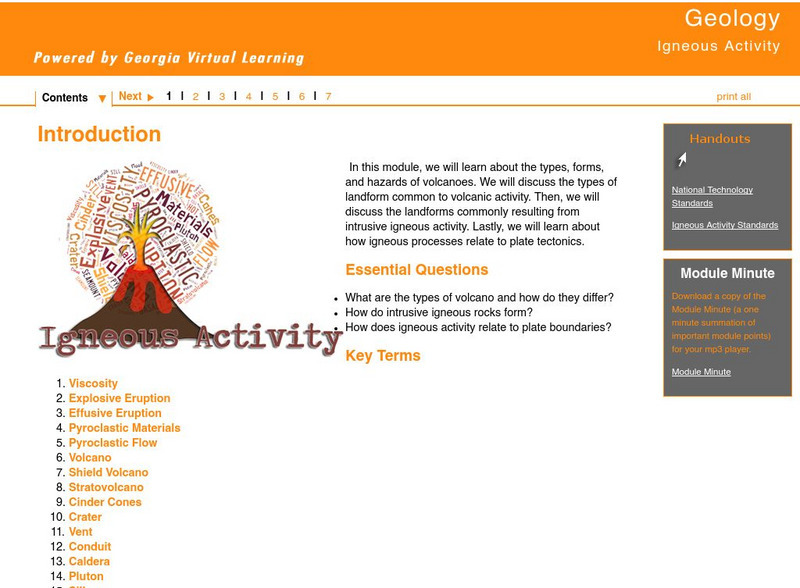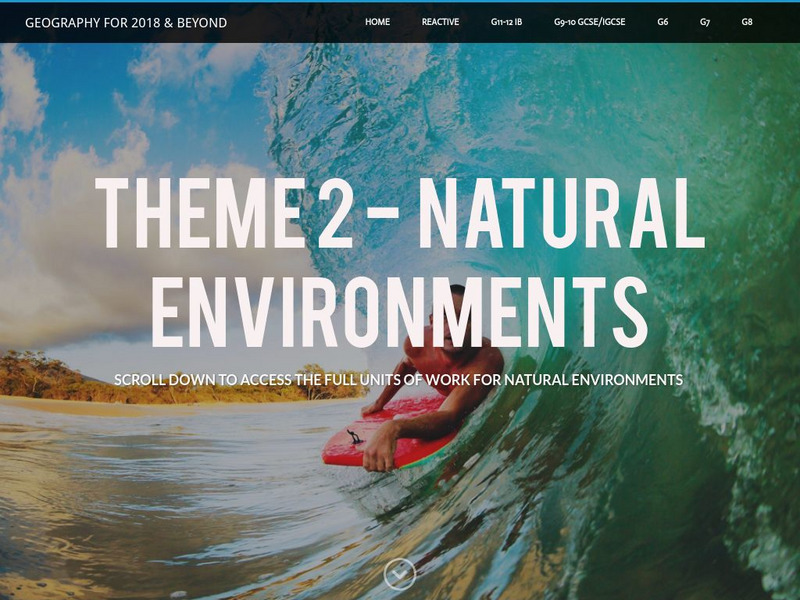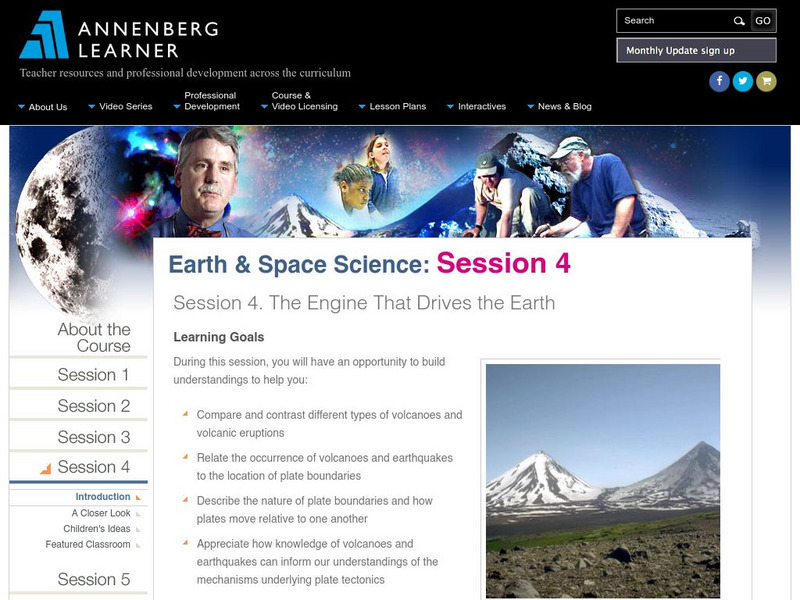Oregon State
World Map of Plate Boundaries
Young geologists piece together the puzzle of plate tectonics in an earth science lesson. Given a physical map of the world, they search for land formations that indicate the location of different types of plate boundaries.
Curated OER
Rocks: Mineral Mixtures
A 22-slide set provides pretty much everything you need to teach the rock cycle except the actual specimens. All of the slides contain graphics or photographs to help describe the process, and most even have links to educational videos....
Curated OER
Life of an Island: From Mountain to Atoll
Students research the evolution of a volcanic island from origin to erosion. They determine the relative ages of the Northwestern Hawaiian Islands given their position in the archipelago.
American Museum of Natural History
Cosmic Cookies
Scholars read about each planet then bake a plate of cosmic cookies—no-bake cookies decorated to look like the planets; Mercury, Venus, Earth, Mars, Jupiter, Saturn, Uranus, Neptune, and Pluto.
Curated OER
Island formation
Students explain what an island is, and distinguish islands from similar landforms. They compare and contrast the different ways in which islands are formed.
Curated OER
Bellwork for Week 10
In this bellwork activity, students answer questions about the Hawaiian islands formation, about science class in general, about rocks and minerals and about experimental design.
Curated OER
Normal (dip-slip) Earthquake!
Students label the fault lines and tectonic plate boundaries on the world map. For this earth science lesson, students simulate ocean floor formation using CEENboTs. They explain the causes of earthquakes.
Curated OER
Life of An Island
Young scholars identify the steps in the life cycle of an island. They label islands in the correct stage of their life cycle and illustrate the process themselves. They also review the concept of plate tectonics.
Curated OER
Bermuda Today: Who Were Its Geologic Ancestors?
Students explore how the island of Bermuda came to be.
Curated OER
Jupiter - King of the Planets
In this Jupiter worksheet, students read a passage about the environment and atmosphere of Jupiter. Students then answer several multiple choice questions about the passage.
American Museum of Natural History
American Museum of Natural History: Hot Spots O Logy Card
Hot spots in the earth's mantle create natural phenomena like geysers and volcanoes. Learn about hot spots by reading this interactive ology cards and answer questions when you're finished.
Tramline
Virtual Field Trip: Volcanoes
In this virtual field trip find out about how volcanoes are formed and what kind of destruction can they cause. Discover how volcanoes affect our environment and where can you find active volcanoes on earth and on other planets.
Science Education Resource Center at Carleton College
Serc: Yellowstone! A National Park on a Hot Spot
A lesson plan with an accompanying PowerPoint learning module for students where they learn about the volcanic features of Yellowstone National Park. They use spreadsheets to make various calculations, such as the volume of material...
US Geological Survey
Usgs: Plate Tectonics, Hot Spots, and Ring of Fire: World Map
A world map featuring active volcanoes, plate tectonics, hot spots, and ring of fire.
CK-12 Foundation
Ck 12: Earth Science: Volcanoes at Hotspots
[Free Registration/Login may be required to access all resource tools.] Volcanoes can form at hotspots away from plate boundaries. This article discusses hotspot activity and how it leads to volcanism in the oceans.
CK-12 Foundation
Ck 12: Earth Science: Volcanoes at Hotspots
[Free Registration/Login may be required to access all resource tools.] Volcanoes can form at hotspots away from plate boundaries.
Khan Academy
Khan Academy: Answers to Exploration Questions: Volcanoes
A site answering questions such as volcano type, how scientist predict eruptions, and how scientist know hot spots exist in Yellowstone National Park.
Annenberg Foundation
Annenberg Learner: Volcanoes
This interactive from Annenberg Learner asks the question of whether erumptions of volcanoes can be predicted. Review what you already know about volcanoes, and move on to forecasting potential. Several short video clips are included as...
CK-12 Foundation
Ck 12: Earth Science: Volcanoes at Hotspots Study Guide
[Free Registration/Login may be required to access all resource tools.] This study guide summarizes the key points of volcanoes at hotspots. Includes a few questions to check for understanding.
PBS
Pbs Learning Media: Volcanism
Volcanoes are one of the most dynamic, powerful, and visible forces on Earth. This interactive resource adapted from the National Park Service uses images to describe different types and parts of volcanoes, volcanic rocks, magma, and...
Georgia Department of Education
Ga Virtual Learning: Igneous Activity
In this interactive tutorial you will learn about the types, forms, and hazards of volcanoes. The types of landform common to volcanic activity is discussed. Then, the landforms commonly resulting from intrusive igneous activity are...
Geographypods
Geographypods: Theme 2: Natural Environments
A rich collection of highly engaging learning modules on topics related to the natural environment. Covers four main areas - plate tectonics, forms and processes, weather and climate, and rainforest and desert. Within each of these,...
Annenberg Foundation
Annenberg Learner: Earth and Space Science: The Engine That Drives the Earth
Material to begin an exploration of volcanoes, earthquakes, and plate tectonics. An hour-long video is accompanied by learning goals, an outline and overview, details on volcano types, plate boundaries, and "hot spots," and ideas for...
US Geological Survey
Usgs: Volcanic Hazards, Features, and Phenomena
Site from the U.S. Geological Survey provides a brief list of volcano terminology including descriptions as well as links to major menus.




